Understanding Caregiver Stress and the Role of Coaching
Caring for an aging loved one can bring immense emotional and physical challenges, often leading to burnout and health issues. Recognizing the importance of structured support, coaching has emerged as a vital intervention to help caregivers manage stress effectively, improve their well-being, and sustain their caregiving roles.
How Coaching Supports Caregivers in Managing Stress
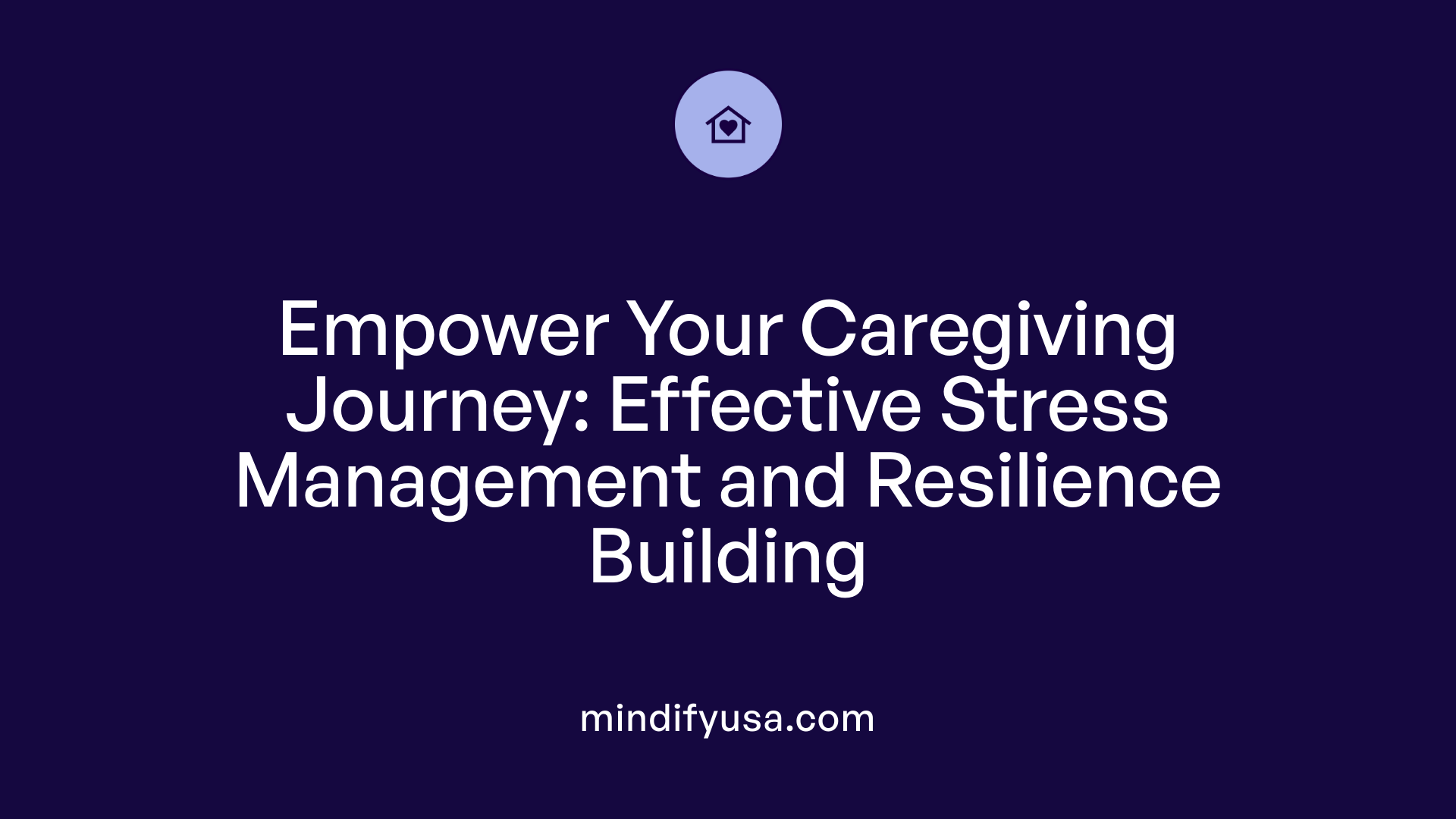
How can coaching help reduce stress and burnout among caregivers?
Care coaching offers valuable support to caregivers by providing tailored strategies that directly address their emotional and physical well-being. Through personalized guidance, caregivers learn effective stress management techniques such as guided meditations, breathing exercises, and grounding practices. These tools help calm the mind and reduce anxiety, making daily caregiving responsibilities more manageable.
In addition to stress relief, coaching boosts confidence by teaching caregivers essential skills and knowledge. Setting boundaries, clarifying realistic goals, and self-care practices are emphasized to prevent overextension and burnout. Care coaches also help caregivers identify specific needs and develop customized self-care routines aligned with models like VA’s Whole Health approach—a holistic way to support well-being.
Building confidence is complemented by connecting caregivers with support networks. Coaches facilitate access to community resources, support groups, and respite care options, encouraging caregivers to ask for help and share their experiences. This social support reduces feelings of isolation and promotes resilience.
What educational tools are included in coaching?
Educational resources form an integral part of caregiver coaching programs. Techniques such as guided meditations help caregivers relax and center themselves amidst stressful situations. Breathing exercises and grounding strategies are also commonly recommended to manage acute stress episodes.
Care coaching often involves teaching caregivers about managing caregiving expectations and developing coping mechanisms for emotional challenges like negative self-talk or high personal standards. These educational tools empower caregivers to handle emotional struggles more effectively and foster a sense of control.
How does coaching improve caregiver confidence and boundaries?
A major goal of coaching is to help caregivers recognize their strengths and build confidence in their caregiving role. Coaches work with caregivers to set realistic goals, establish healthy boundaries, and learn to say no when necessary. This not only reduces overwhelm but also allows caregivers to prioritize their own health and happiness.
Confidence in managing caregiving tasks often leads to improved self-esteem and a better outlook on their role, which in turn lowers stress levels. Creating clear boundaries ensures caregivers maintain a balance between caregiving duties and personal needs.
Connection with support networks and community resources
Many coaching programs actively connect caregivers with broader support systems. This includes referrals to local caregiver organizations, respite services, mental health providers, and community groups. Such connections provide both practical help and emotional reinforcement.
By fostering these networks, coaches enable caregivers to share experiences, gain new insights, and reduce feelings of loneliness and burden. The ability to access multiple forms of support is crucial for sustained well-being.
| Aspect | Description | Additional Benefits |
|---|---|---|
| Stress reduction techniques | Guided meditations, breathing exercises | Improved emotional regulation |
| Confidence-building | Goal setting, boundary management | Increased resilience and sense of control |
| Support network connections | Referrals to community services and groups | Reduced isolation and enhanced support |
| Educational tools | Caregiving skills, expectation management | Better coping and stress management |
This comprehensive approach to coaching not only relieves immediate stress but also fosters long-term emotional resilience, helping caregivers sustain their vital roles while maintaining their health.
Educational Tools and Techniques in Caregiver Coaching
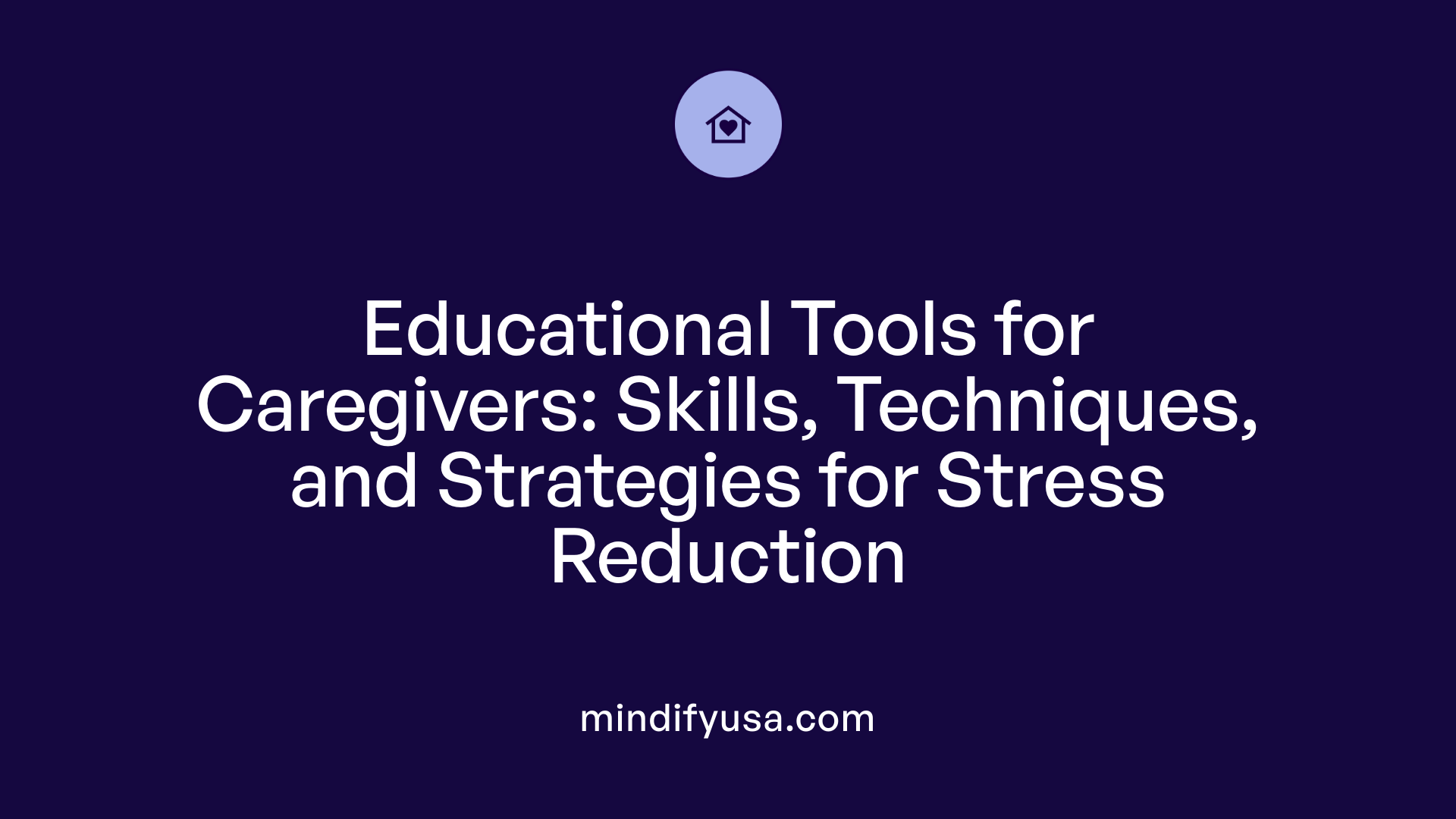
What stress relief techniques and exercises are recommended for senior caregivers through coaching?
Caregiver coaching emphasizes a variety of stress management strategies tailored to the needs of seniors caring for loved ones. One of the most common approaches involves mindfulness practices such as guided meditations, visualization, and deep breathing exercises. These techniques help calm the mind, reduce anxiety, and promote emotional balance.
In addition to mindfulness, physical activities like walking, gardening, or gentle stretching are recommended to boost mood and physical health. These activities serve as natural stress relievers and also provide opportunities for caregivers to reconnect with nature and their surroundings.
Maintaining consistent self-care routines is vital. This includes ensuring adequate sleep, balanced nutrition, and staying socially connected through friends, support groups, or mental health professionals. Social support provides emotional relief and practical assistance, helping caregivers feel less isolated.
Utilizing respite care options—such as in-home services, adult day care centers, or short-term nursing home stays—gives caregivers necessary breaks to recharge physically and mentally. Scheduling regular breaks prevents exhaustion and burnout.
Caregivers are also encouraged to set realistic goals, practice self-compassion, and incorporate relaxation techniques like yoga or laughter therapy into their routines. These methods can help manage chronic stress and foster a compassionate attitude toward oneself.
Overall, integrating these exercises and routines into daily life can significantly improve emotional well-being, resilience, and caregiving sustainability.
Self-Care and Mindfulness Promotion Through Coaching
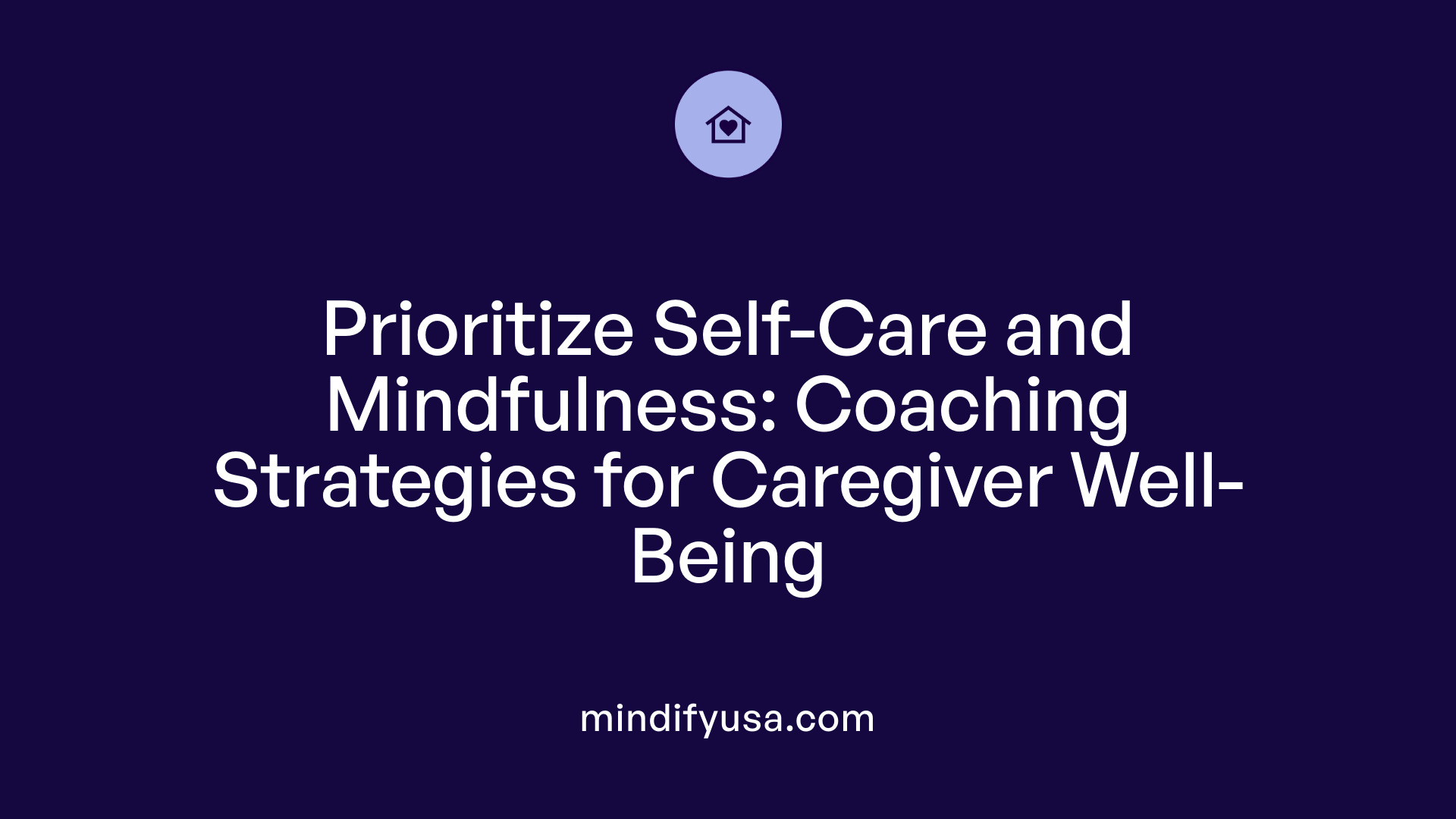
How can coaching promote self-care and mindfulness for caregivers?
Coaching serves as a powerful tool in helping caregivers prioritize their well-being by embedding mindfulness practices into everyday life. Professional coaches guide caregivers to adopt simple yet effective mindfulness techniques such as meditation, breathing exercises, and gentle movement routines. These practices help caregivers stay grounded and present, reducing stress and fostering emotional stability.
A key aspect of coaching involves developing self-awareness. Caregivers learn to recognize their emotional and physical signals, which is crucial for managing stress and preventing burnout. Coaches encourage reflective practices like journaling and self-compassion, enabling caregivers to respond more kindly to their own needs and to manage negative self-talk.
Supporting caregivers in prioritizing self-care is central to coaching strategies. Coaches often suggest practical steps, such as scheduling regular breaks, connecting with community resources, and joining support groups. These activities bolster emotional resilience and help caregivers feel less isolated.
Building resilience through mindful practices is another focus area. Programs like those offered by the Zen Caregiving Project or specialized courses teach caregivers skills in present-moment awareness, emotional regulation, and compassionate self-reflection. These skills enable caregivers to navigate their challenges with greater ease and patience.
Overall, coaching not only teaches caregivers how to incorporate mindfulness into their routines but also sustains these practices. This ongoing support helps reduce anxiety, enhances overall well-being, and makes it easier for caregivers to remain connected with their loved ones. By fostering a mindful approach to self-care, coaching empowers caregivers to find balance amidst their demanding roles.
Support and Counseling Services for Caregivers
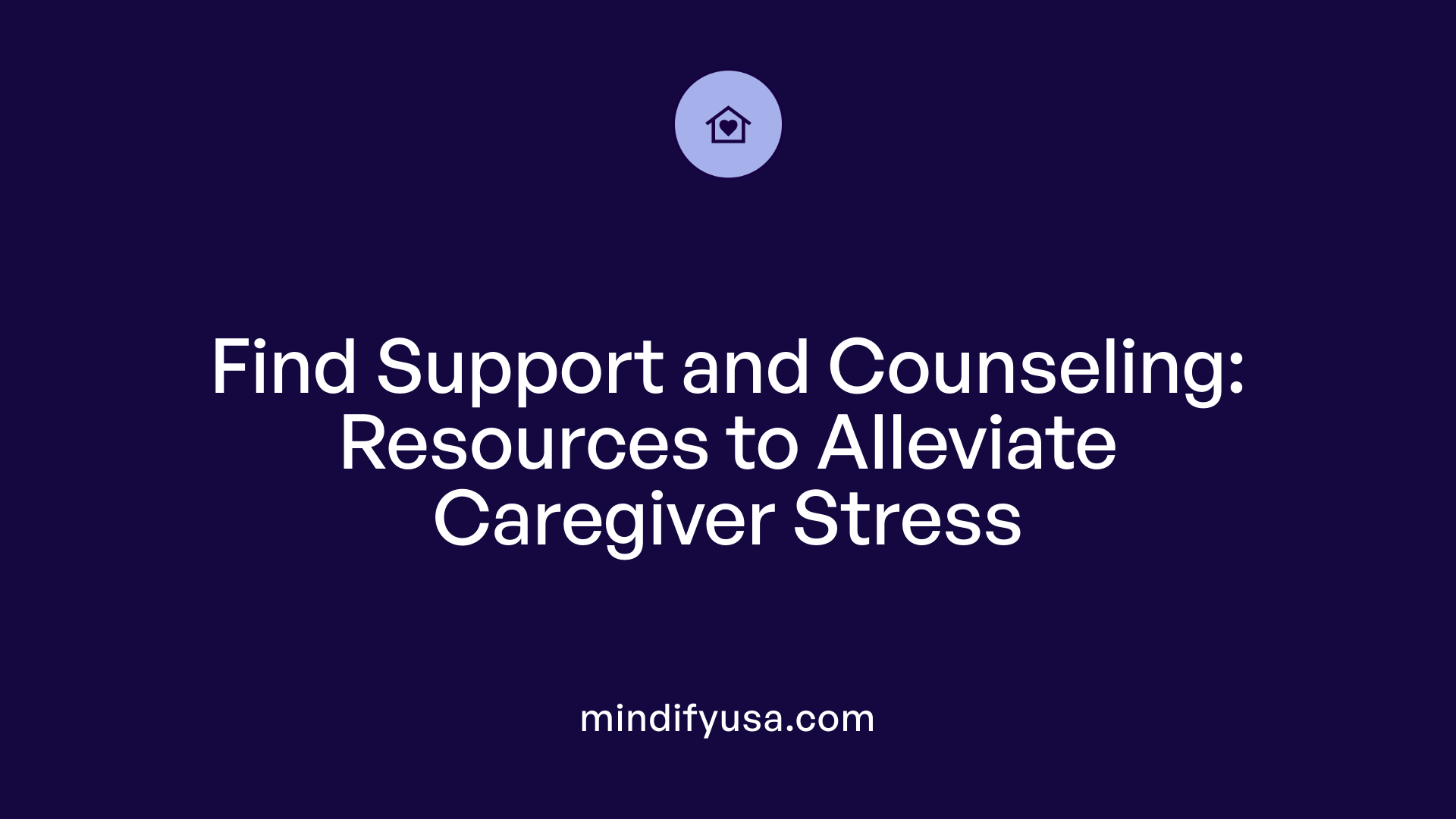
What types of coaching services and counseling are offered to help caregivers alleviate stress?
Caregivers have access to various coaching and counseling options designed to reduce stress and provide emotional support. Many programs, such as the VA Caregiver Support Program, offer personalized health plans that focus on improving both physical and emotional wellbeing. These services include tailored coaching sessions that help caregivers develop coping strategies, set realistic goals, and learn how to manage their daily responsibilities more effectively.
Counseling services are often provided through dedicated Caregiver Resource Centers (CRCs) or similar organizations. These centers typically offer short-term counseling options, including individual, family, and group sessions. The counseling aims to address emotional challenges such as grief, burnout, anxiety, and depression. It helps caregivers process their feelings, develop resilience, and learn stress management techniques.
Beyond emotional support, these services usually encompass legal, financial, and care planning advice. Caregivers can consult with professionals about managing healthcare directives, legal documents, financial assistance, and long-term care arrangements. Educational workshops and seminars are also common, focusing on topics like dementia management, preventing caregiver burnout, and effective communication.
Support services are widely accessible through local agencies, nonprofit organizations, and private providers. These programs strive to empower caregivers by providing resources, education, and personalized strategies to maintain their health and wellbeing, ultimately helping prevent exhaustion and burnout.
Evidence-Based Programs and Ongoing Support Initiatives
There are several programs and initiatives designed to help caregivers manage stress, improve well-being, and prevent burnout. Evidence-based programs such as the ViCCY trial and the COACH program demonstrate notable benefits for caregivers and their care recipients.
Studies evaluating ViCCY, a virtual health coaching intervention, suggest that tailored coaching via video conferencing can improve caregiver self-care and reduce stress. Participants receiving 10 personalized coaching sessions over six months showed promising outcomes, including increased confidence in caregiving and better stress management. The study also explored the impact on patients, hypothesizing reductions in hospitalizations and improvements in quality of life, with results expected in 2024.
Similarly, the COACH program, targeting dementia caregivers within the veteran community, has shown significant results. Through weekly coaching sessions and multidisciplinary support, caregivers experienced a reduction in reportable elder mistreatment from 22.5% at baseline to 0% at three months. The program also improved social quality of life and reduced caregiver stress and agitation, leading to fewer nursing home placements—just 4% of COACH participants compared to 7% in controls.
These interventions are tailored to individual needs, combining psychological and behavioral strategies such as stress management, boundary setting, and resource linkage. Such programs improve both caregiver well-being and patient safety, often with measurable outcomes in reduced hospital stays and caregiver depressive symptoms.
Cost-effectiveness analyses of these programs are underway, showing potential for broad application across healthcare systems. The flexibility of delivery methods, including telehealth and home visits, makes these programs accessible to a wider range of caregivers, especially those facing obstacles to in-person support.
Support initiatives extend beyond coaching to include practical resources and community connections. Programs like the VA’s Building Better Caregivers, the Senior Source, and local support groups provide information, counseling, respite care, and peer mentoring. These multisector efforts emphasize the importance of self-care, social support, and professional assistance in reducing caregiver stress.
| Program Name | Focus Area | Delivery Method | Outcomes | Additional Support |
|---|---|---|---|---|
| ViCCY | Virtual coaching for caregivers | Video conferencing | Improved self-care, reduced stress | Education, resource linkage |
| COACH | Dementia caregiving | Home visits, telehealth | Reduced mistreatment, enhanced quality of life | Skills training, safety, behavioral management |
| Building Better Caregivers | Caregiver education | In-person, online | Increased caregiver confidence | Support groups, resources |
| Senior Source | Comprehensive support | Workshops, counseling, referrals | Stress reduction, resource access | Legal, health, financial aid |
In conclusion, evidence-based coaching programs and comprehensive support initiatives are increasingly demonstrating their value. They help caregivers navigate emotional challenges, promote healthier coping mechanisms, and enable better outcomes for both caregivers and their loved ones. As research continues, these interventions are likely to become more refined and widely integrated into health and social care services.
Comprehensive Approaches to Senior Caregiving Stress Relief
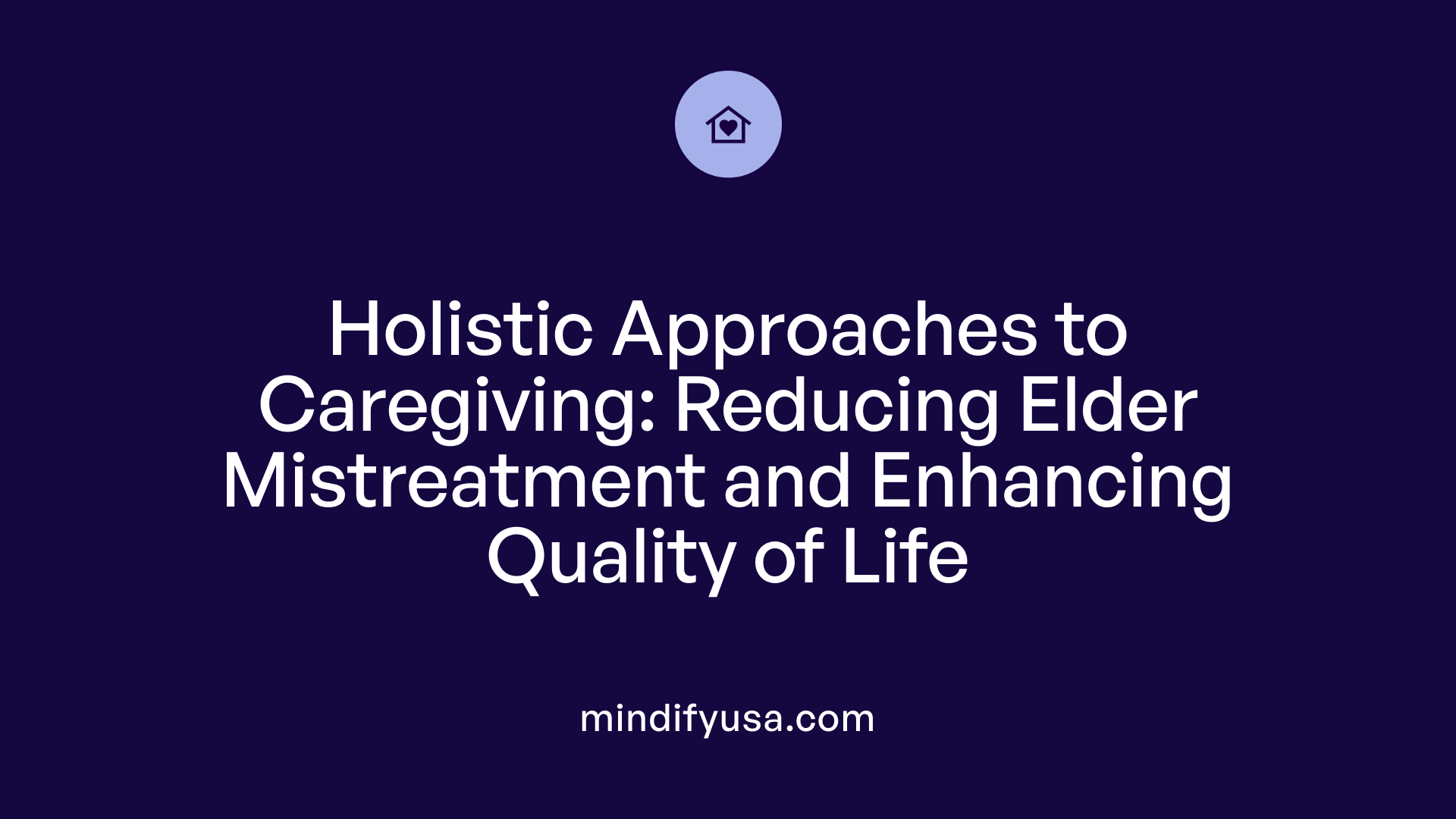
How can coaching and support programs prevent elder mistreatment and improve caregiver quality of life?
Support initiatives like the VA’s COACH program and various home-based care services play a significant role in reducing elder mistreatment and boosting caregiver well-being. These programs involve a combination of education, ongoing support, and skills training delivered through multiple channels such as home visits, telehealth sessions, group workshops, and educational series.
The primary focus is on behavioral management, safety, and planning for future care needs. For example, caregivers are taught how to handle challenging behaviors, create safer environments, and engage in advance care planning. These components are essential to minimizing risks of elder mistreatment—abuse, neglect, or exploitation.
Results from the COACH pilot study highlight the effectiveness of such strategies:
| Program Component | Outcomes | Additional Notes |
|---|---|---|
| Behavioral management | Reduction in caregiver negative reactions to agitated behaviors by 34% after one year | Aims to foster calmer environments and improved interactions |
| Elder mistreatment | Drop from 22.5% to 0% in three months | Demonstrates the potential for substantial risk reduction |
| Caregiver quality of life | Immediate improvement post-intervention | Emphasizes the importance of social and emotional support |
| Safety and planning | Enhanced safety awareness and planning preparedness | Supports long-term safety and elder protection |
By addressing behavioral challenges, providing education, and connecting caregivers to local resources and community support, these programs empower caregivers to manage their responsibilities more confidently. This not only reduces the likelihood of harm to elders but also alleviates the emotional and physical stress experienced by caregivers.
Ultimately, such comprehensive, person-centered approaches foster safer, healthier environments for seniors, while enhancing the resilience and well-being of those who care for them.
Empowering Caregivers for a Better Future
Effective stress relief for senior caregivers hinges on accessible coaching services, evidence-based programs, and a broad network of resources and support. By integrating techniques such as mindfulness, setting boundaries, and utilizing community resources, caregivers can build resilience and sustain their vital roles. Emphasizing a holistic approach that combines emotional support, practical assistance, and ongoing education will not only improve caregiver well-being but also enhance the quality of life for the seniors they serve, ultimately fostering a safer and more compassionate caregiving environment.
References
- The Role Of A Care Coach In Reducing Caregiver Stress
- Health Coaching to Improve Self-Care of Informal ...
- Caregiver stress: Tips for taking care of yourself
- Tools for Overcoming Caregiver Stress While Caring ...
- Caring for Older Adults and Caregivers at Home (COACH)
- Caregiver Coaching and Counseling
- Coping Strategies for Caregivers: A Comprehensive Guide ...
- Comprehensive Older Adult and Caregiver Help (COACH): A ...
- Supportive Resources for Caregivers





































































































